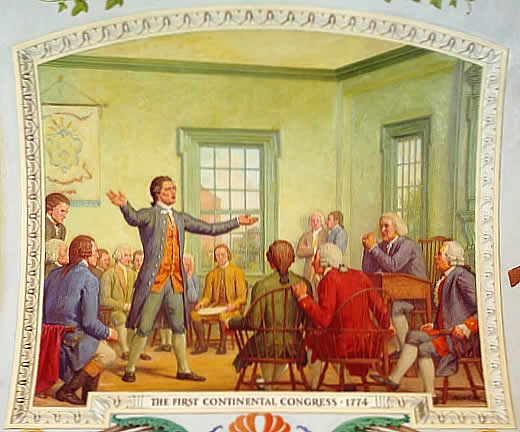Budgeting, part
1: Income
What kind of career do you want?
____________________________________
Go to bls.gov to
find the following information:
How much does that career makes annually?
____________________________________________
How much education will be required in order to be qualified
for this career?
#of
years of post-secondary education/degree needed:
_________________________________
Now, take
out the tax owed by using the following table: (from
http://taxes.about.com/od/Federal-Income-Taxes/qt/Tax-Rates-For-The-2012-Tax-Year.htm)
·
10% on taxable income from $0 to $8,700
·
15% on taxable income over $8,700 to $35,350
·
25% on taxable income over $35,350 to $85,650
·
28% on taxable income over $85,650 to $178,650
·
33% on taxable income over $178,650 to $388,350
·
35% on taxable income over $388,350.
What is your income after tax, your disposable income? _______________________________________
Divide your disposable income by 12 to find your monthly take home pay:
________________________
Budgeting, part
2: Necessities
What type of post-secondary education is required? Circle/highlight which of the loans you will
have taken out in order to pay for this education (these are the average loans
across the country):
|
Undergraduate
Education Debt
(Excluding Parent PLUS Loans)
|
|
Institution Level & Control
|
Cumulative
Debt
|
|
4-year Total
|
$22,656
|
|
4-year Public
|
$19,839
|
|
4-year Private Non-Profit
|
$27,349
|
|
4-year Private For-Profit
|
$24,635
|
|
2-year Total
|
$12,307
|
|
2-year Public
|
$10,444
|
|
2-year Private Non-Profit
|
$14,790
|
|
2-year Private For-Profit
|
$17,310
|
|
< 2-year Total
|
$10,172
|
|
< 2-year Public
|
$10,321
|
|
< 2-year Private Non-Profit
|
$10,990
|
|
< 2-year Private For-Profit
|
$10,123
|
Tables from (http://www.finaid.org/loans/)
|
All
Students
|
All
Education Debt
(Grad & Undergrad)
|
|
Graduate & Professional Degree
Programs
|
Cumulative
Debt
|
|
Master's Degree
|
$40,208
|
|
Doctoral Degree
|
$58,967
|
|
Professional Degree
|
$98,711
|
|
Master of Business Administration
(MBA)
|
$41,676
|
|
Master of Social Work (MSW)
|
$49,017
|
|
Master of Science (MS)
|
$40,362
|
|
Master of Arts (MA)
|
$40,500
|
|
Master of Education or Teaching
|
$35,946
|
|
PhD
|
$45,455
|
|
EdD
|
$44,880
|
|
Law (LLB or JD)
|
$92,937
|
|
Medicine or Osteopathic Medicine
|
$127,272
|
|
Pharmacy (PharmD)
|
$81,838
|
___________________
Find an apartment to rent.
How much per month will it cost? __________________________________
(Found at:
___________________________________________________________________________)
For utilities (heat, electricity, plumbing, etc.), we
will set everyone at a monthly rate of $100
|
Plans
|
Standard
Plan A
|
|
Individual
Deductible
|
$250
|
$500
|
$1,000
|
$1,500
|
|
MEGA
Life & Health Insurance Co. Telephone Number* 800-527-5504, Option 1
“Insureds”. When it asks for your Insurance ID #, verbally say
“Representative.” The recording will then respond by saying, “did you say
representative, if so press 1”. Press 1.
|
|
Single
Premium
|
|
Nonsmoker
|
$1,279
|
$1,268
|
$1,245
|
$1,222
|
|
Smoker
|
$1,497
|
$1,483
|
$1,457
|
$1,430
|
|
Family Premium
|
|
Nonsmoker
|
$3,191
|
$3,164
|
$3,108
|
$3,052
|
|
Smoker
|
$3,626
|
$3,595
|
$3,531
|
$3,468
|
|
Sample
rates are based on a community rate.
A one-time application fee of $50 is added to the above rates.
|
Health
Insurance: _________________
Find a car to buy or lease. What kind of car? __________________ Monthly
payment: ______________
(Found at:
_________________________________________________________________________)
Circle one: If you have a truck or SUV, plan on spending at
least $150 on gas, for a sedan, plan on $100
Find a car insurance policy at
www.geico.com
(use a fake name & the address of your fake home, also a DOB that makes you
at least 18) for you pretend car. How much per month? _____________________
For groceries, plan on spending at least $60/ week. How much is that per month?
__________________
Now, find a cell phone plan.
How much per month? __________________________________________
(Found at:
_________________________________________________________________________)
Now, find an internet/cable plan. How much per month?
______________________________________
(Found at: _________________________________________________________________________)
You should save or invest at least 20% of your income for
EMERGENCIES & RETIREMENT. How much savings/month? ________________
ADD UP YOUR MONTHLY NECESSITY EXPENSES:
|
student
loan payment
|
$
|
|
rent
|
$
|
|
utilities
|
$
|
|
health
insurance
|
$
|
|
car
lease
|
$
|
|
gas
|
$
|
|
car
insurance
|
$
|
|
groceries
|
$
|
|
phone
|
$
|
|
internet/cable
|
$
|
|
savings/investment
|
$
|
TOTAL NECESSITIES: $______________________ /month
Now, subtract your monthly cost of your necessities from
your monthly disposable income to find your discretionary income:
________________________ –– ________________________ =
____________________
(Monthly
disposable income) (minus) (Monthly cost of necessities) (equals)
(discretionary income)
What could/should you buy with your discretionary income? ___________________________________
_____________________________________________________________________________________
List at least three emergencies that you should have money set aside
for:_________________________
_____________________________________________________________________________________
What was your largest monthly expense?
__________________________________________________
How could you reduce this?
______________________________________________________________
_____________________________________________________________________________________
What expense(s) surprised you the most?
Why? _____________________________________________
_____________________________________________________________________________________
What expenditures did you have to reduce to pay your other monthly
expenses? ___________________
_____________________________________________________________________________________
What has this activity taught you?
_________________________________________________________
_____________________________________________________________________________________






